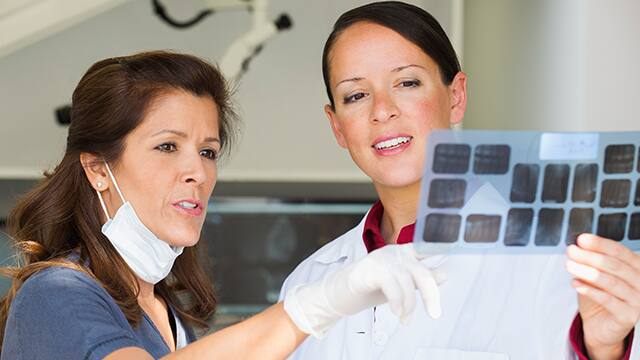The mere mention of the term "root canal" can make many people squirm nervously in their seats. The procedure has been vilified in movies and situation comedies, and most people have probably heard alarming stories of the pain associated with it from at least one friend or family member.
But is all of this fear truly warranted? Is this procedure as painful as people seem to think? According to experts, the popular conception of root canal pain may no longer be based in fact.
What Causes the Pain?
The first thing to understand is that a root canal treatment itself is not the actual source of the pain experienced by most patients. Root canals are intended to relieve pain, not cause it. In fact, with today's advances in anesthesia and surgical techniques, the discomfort generally experienced during a root canal is no greater than that felt when having a tooth filled.
On the contrary, tooth pain is usually caused by damaged, infected tissue, such as the pulp; root canals remove this troublesome tissue and clean the area, stopping the infection and relieving the pain. Although the tooth and surrounding area might be sore for a few days, your dentist can prescribe medication to help alleviate the symptoms and allow you to get back to work almost immediately.
Isn't It Better to Just Pull the Tooth?
The majority of dentists agree that keeping your natural tooth is preferable to removing it and replacing it with a bridge or implant. Root canals are one of the methods used to preserve a tooth, removing the damaged pulp rather than resorting to a costly and irreversible extraction that can cause much more stress to the body.
Now that you know the truth about root canal pain, don't be afraid to go to your dentist if you are experiencing tooth discomfort. Root canals have a high success rate and can help you keep the tooth in question for the rest of your life.





